
Maria A.
Born in Albania, "Maria" was trafficked into Italy, France, and the Netherlands. Closing the door on slavery seems almost impossible: “The shame for our parents and us is too large…what man will marry me?...It is difficult to smile.” Instead she reopens the door to her slave past and tries to help other trafficking victims—telling them that “they must make a new life” and inviting them to share their stories.
Many women are trafficked into richer Western European countries from the poorer Eastern countries, including Albania. The fall of communism in 1991 led to a rise in organized crime in Albania: in 2001 it was estimated 100,000 Albanian women and girls had been trafficked to Western European and other Balkan countries in the preceding ten years. More than 65 percent of Albanian sex-trafficking victims are minors at the time they are trafficked, and at least 50 percent of victims leave home under the false impression that they will be married or engaged to an Albanian or foreigner and live abroad. Another ten percent are kidnapped or forced into prostitution. The women and girls receive little or no pay for their work, and are commonly tortured if they do not comply.
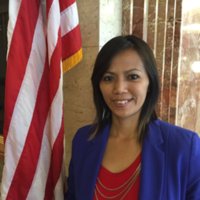
Ima (Narrative 1)
At age 16, Ima Matul was forced into an arranged marriage in Indonesia with a man 12 years her senior. After running away, was offered an opportunity to work in the United States as a nanny. But instead she was held in domestic forced labour for three years in Los Angeles. She told her story to another survivor, Flor, in 2009. Both women were part of the Survivor Advisory Caucus attached to the Coalition Against Slavery and Trafficking in Los Angeles (CAST LA). Another narrative by Ima can be found within the archive.

Ima (Narrative 2)
At age 16, Ima Matul was forced into an arranged marriage in Indonesia with a man 12 years her senior. After running away, was offered an opportunity to work in the United States as a nanny. But instead she was held in domestic forced labour for three years in Los Angeles. She told her story to another survivor, Flor, in 2009. Both women were part of the Survivor Advisory Caucus attached to the Coalition Against Slavery and Trafficking in Los Angeles (CAST LA). Another narrative by Ima can be found within the archive.

Holly (Narrative 2)
Holly Austin Gibbs (formerly Smith) is a survivor of child sex trafficking and an advocate for survivors of all forms of human trafficking. In 2011, Holly submitted joint testimony to Congress with labour trafficking survivor, Ima Matul, in support of reauthorization of the Trafficking Victims Protection Act. Holly also testified before the U.S. Congressional Subcommittee on Africa, Global Health, Global Human Rights, and International Organizations on the connection between sporting events and sex trafficking. In 2015, Holly testified before the U.S. Senate Judiciary Committee on behalf of two bills: Justice for Victims of Trafficking Act and Stop Exploitation Through Trafficking Act. Another narrative by Holly can be found in the archive.
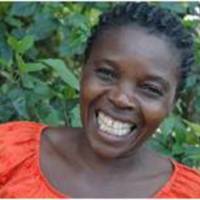
Helia (Narrative 1)
Helia Lajeunesse is part of a women’s group, Limye Lavi, which works to end the institution of restavec in Haiti. Restavèk is a traditional system in which Haitian children from homes suffering economic and social difficulties are sent by parents to live with other families and work for them as domestic servants. There is a perception that the child will be enrolled in school by the host household and treated like one of the family, but often the reality is completely different. For many children, the day is filled with work. Lajeunesse’s own children were put into restavec fosterage when they were young, but with the help of Limye Lavi, her children are now free as well.

Given (Narrative 2)
Given was brought to the United States from Zambia at 11 to work as part of a boys’ choir. He was promised an education and pay for his work, but instead was exploited and enslaved. Rescued by the U.S Citizenship and Naturalization Services (INS) in 2000, Given speaks out about his experience in an effort to help other victims to bring an end human trafficking. He has testified at a Texas legislative committee, which passed a state Anti-Trafficking Bill that provides justice for trafficking victims and prosecutes alleged traffickers. His story has been used as part of the Federal Human Trafficking Awareness Campaign and also helped create “Slavery Still Exists,” a national guide that has been distributed in numerous communities. Another narrative by Given can be found in the archive.

Given (Narrative 1)
Given was brought to the United States from Zambia at 11 to work as part of a boys’ choir. He was promised an education and pay for his work, but instead was exploited and enslaved. Rescued by the U.S Citizenship and Naturalization Services (INS) in 2000, Given speaks out about his experience in an effort to help other victims to bring an end human trafficking. He has testified at a Texas legislative committee, which passed a state Anti-Trafficking Bill that provides justice for trafficking victims and prosecutes alleged traffickers. His story has been used as part of the Federal Human Trafficking Awareness Campaign and also helped create “Slavery Still Exists,” a national guide that has been distributed in numerous communities. Another narrative by Given can be found within the archive.

Dara
“Dara” was enslaved for sexual exploitation as a child in Cambodia. Here she discusses her enslavement and the psychological impact that this has had on her, explaining the difficulty of reintegrating into society after her enslavement, and that she feels “finished” and “dead.” She also talks about her work as a volunteer helping other survivors of slavery to train and take control over their lives. Despite significant attempts to curb the commercial sexual exploitation that Cambodia became famous for in the 1990s, NGOs report the industry has been pushed underground and sex offenders are still able to purchase sex with children through an intermediary rather than more overt selling of sex in brothels.

Carissa
Carissa Phelps is the Founder and Chief Executive Officer of the organisation Runaway Girl. She grew up in California and, enduring a troubled home life, dropped out of school when she was 12 and ran away. After meeting a pimp, she was forced into prostitution, and later arrested alongside him. After returning home she was arrested for joyriding and sent to a juvenile detention centre, where she began to receive therapy and an education. She went on to graduate from high school, university and obtain a law degree from University of California, Los Angeles (UCLA). A documentary about her story was released in 2008, named Carissa.

Barbara
Barbara Amaya is an award winning author, advocate and survivor. From the age of 12 she was trafficked in Washington DC and New York for over a decade. A sought-after speaker and advocate for trafficking victims and survivors of trauma everywhere, Barbara has shared her story on television and college campuses as well as with multiple civic, legal, faith and women’s organizations. Barbara is called upon by law makers and law enforcement to train others and to add her expert testimony to aid in the passing of human trafficking legislation in her home state of Virginia as well as other states. In 2014 Barbara was awarded the James B. Hunter Human Rights Award. She is the author of the book Nobody's Girl: A Memoir of Lost Innocence, Modern Day Slavery and Transformation (2015).
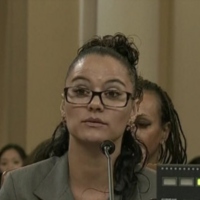
Withelma
Withelma Ortiz Walker Pettigrew grew up in the U.S. foster care system. Between the ages of 10 to 17 she was subjected to commercial sexual exploitation in Oakland, California, on the streets and in strip clubs and massage parlours. She now serves on the boards of the Human Rights Project for Girls (Rights4Girls), and the National Foster Care Youth and Alumni Policy Council, and is a consultant for the National Center for Missing and Exploited Children. She founded the Still Alive Initiative in 2009, which provides mentoring and counseling for survivors of commercial sexual exploitation, and consulting and training for government agencies, institutions, and nonprofits on youth policy and service provision.

Asia
In 2004, at age 16, Asia Graves was trafficked in Boston and spent two and half years trapped in sexual exploitation. In 2009 she testified during a six-day trial that resulted in the conviction of two men at the centre of a major child-trafficking operation. They were both sentenced to 25 years in prison. Before testifying, she had moved to Tennessee, fearing for her safety, and returned to Boston only to speak at trial. In 2012 she moved to Washington DC and began work as the Maryland Program Coordinator and Survivor Advocate at FAIR Girls, a nonprofit group fighting sexual exploitation.
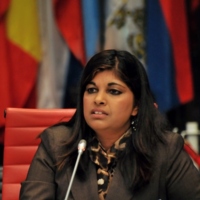
Rani
Rani was taken from her family in India and enslaved when she was seven years old. After a year, her enslaver sold her into illegal adoption. She grew up in the United States. In 1992 she married Trong Hong, a survivor of trafficking in Vietnam, where he had been a child soldier. In 2002, Rani's testimony before the Washington State legislature helped to pass the state's first anti-trafficking legislation. Rani and Trong run the the Tronie Foundation, which supports survivors of human trafficking.
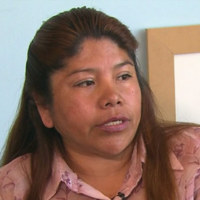
Flor (Narrative 1)
In 2001, Flor Molina was 28 years old and had just lost her youngest child. She was working two jobs in Puebla, Mexico, but not making enough money to feed and clothe her surviving children. At night, she took sewing classes. When her sewing teacher told her about a job in the United States, she accepted. But a woman confiscated her documents at the border. She was taken to Los Angeles, and immediately put to work in a sewing factory. There she worked 18-hour-days, was subjected to physical abuse, and wasn’t allowed to leave the building unattended. She escaped after 40 days and was helped by CAST, an LA-based NGO. She told her story in 2010, as part of the California legislature's hearings on the California’s Transparency in Supply Chains Act. The law requires companies doing business in California with more than $100 million in annual global profits to report their efforts to eliminate slavery from their supply chains. Flor is now a member of CAST’s Survivors Caucus, a group of women from numerous countries who escaped forced labor in the United States. Another narrative by Flor can be found in the archive.